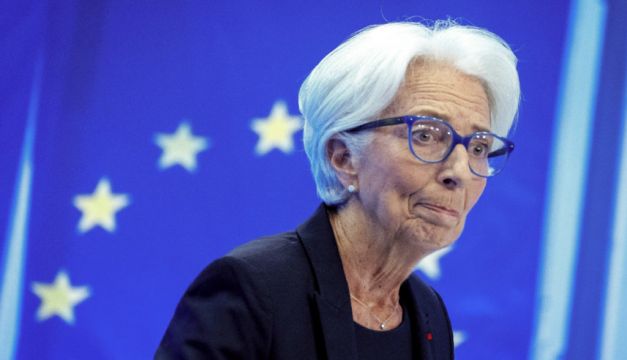The European Central Bank (ECB) is set to follow the lead of the US Federal Reserve in making its second big interest rate increase in a row on Thursday, underlining its determination to stamp out the record inflation that threatens to sink the 19-country Euro zone area into recession.
An increase of three-quarters of a percentage point is the likely outcome of the meeting based on public comments from bank officials.
The 25-member governing council led by bank president, Christine Lagarde, made the same record hike at its last meeting on September 8th, echoing drastic moves by the Fed, which hiked by three-quarters of a point for the third time straight last month.
The ECB is aiming to reduce inflation that hit 9.9 per cent in September, the highest since statistics started being compiled in 1997 for the 19 countries that use the euro. That is far above its goal of 2 per cent considered best for the economy.
A big increase would underscore the bank’s resolve to get consumer prices under control but comes amid uncertainty about the future of the eurozone economy. Many economists are pencilling in a recession for the end of this year and the first part of next year. While higher rates can fight inflation, they can also weigh on already slowing economic growth.
“The ECB has turned a blind eye on recession risks but is highly determined to bring down inflation and inflation expectations. To this end, it is hard to see how the ECB cannot move again” by three-quarters of a point, said Carsten Brzeski, chief eurozone economist at ING bank.
Analysts said another rate hike is likely at the ECB’s December meeting.
Bank policymakers had differing views about the strength of the economy at their last meeting, according to a written account released on October 6th.
There is high uncertainty about the course of the war in Ukraine, which sent energy prices sharply higher this year. That has raised utility bills, robbing consumers of purchasing power and making some factory work unprofitable, slowing the economy.
The ECB’s interest rate decisions strongly influence borrowing costs for businesses and consumers. Making credit more expensive tends to slow purchases and investment, reducing demand for goods and services and, in theory, cooling inflation. Its key refinancing rate for loans to banks stands at 1.25 per cent.
The bank also must keep an eye on the euro’s sagging value against the US dollar, although the ECB says it does not target any particular exchange rate.
A weaker euro worsens inflation by raising the price of imported goods. The euro rose above parity with the dollar on Wednesday but remains near its lowest levels in 20 years.
Reasons for the dropping exchange rate include higher US interest rates that attract money into investments priced in dollars and, more broadly, the dwindling prospects for Europe’s economy.
Europe is facing headwinds from the loss of cheap Russian natural gas and an economic slowdown in key trade partner China.







